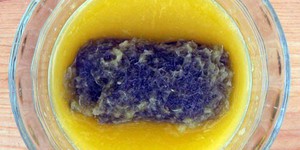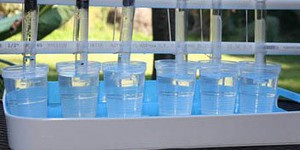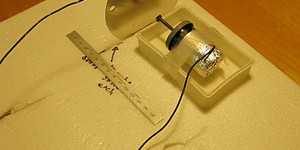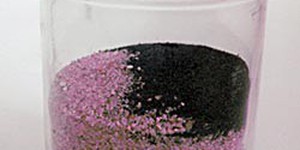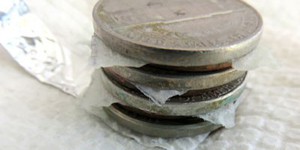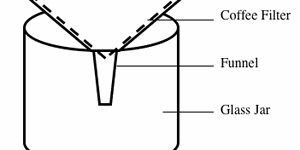Others Like “Which Metal Is the Most Resistant to Corrosion?” (top 20 results)
|
Have you ever left your bike outside in the rain? If so, you might have discovered unpleasant surprises afterwards—reddish-brown patches, known as rust, and your wheels, brakes, and gears might have stopped working so smoothly. In this chemistry science fair project, you'll learn why rust, a type of corrosion, is a serious problem. You'll also discover that not all rains are the same! Find out which ones can speed up the rusting process.
Read more
Earth's atmosphere, the ocean of air that blankets the planet, is mostly nitrogen and oxygen, with small amounts of other gases. How much oxygen is present in air at sea level? In air high up in the Appalachians or Rockies? Atop Mount Everest? How much oxygen is present in the air you breathe? Here's a project that shows you how to measure the percentage of oxygen in an air sample.
Read more
Pennies are bright and shiny when they are new, but become quite dull with time. What causes such a drastic change? Oxygen in the air combines with the copper in the penny to form copper oxide, which makes the penny look dull and dingy. You can make the pennies look like new again by soaking them in water that is corrosive enough to strip off the copper oxide layer. It turns out, however, that the same process that makes the pennies shiny has bad consequences when it comes to copper pipes: it…
Read more
This project uses liquid cultures and agar plates to investigate the effects of different concentrations of a food preservative on microbial growth.
Read more
Have you ever gotten a shock touching a doorknob after walking across a carpet? Static charge is responsible for that shock. Wouldn't it be cool to save up and store all of that charge in a homemade jar? It would almost be like storing lightning. This science project will show you how to do that.
Read more
Have you ever looked in the kitchen cupboard and found a container of tiny white grains, but you were not sure if they were sugar or salt? They look very similar. How could you tell them apart? Well, you know that sugar and salt taste very different. Taste is actually called a property, and properties are used to describe and identify different materials. Properties can also be used to physically separate things. In this science project, you will use different properties to create a way…
Read more
Have you ever pulled a muscle or just been sore after a long day of work or exercise? Hot showers are great, but maybe you've used the more convenient heat packs. Heat packs, which you can buy at grocery or drug stores to soothe aching muscles, use exothermic reactions to produce a low level of heat that lasts for an extended period of time. Exothermic reactions change chemical energy into heat energy. In this chemistry science fair project, you will use heat packs to study the heat-generating…
Read more
Many essential chemical reactions and natural biochemical processes occur in liquid solutions, so understanding the chemical properties of liquid solutions is fundamentally important. This project asks the basic question, how much of a substance can dissolve in water, for three different substances: ordinary table salt, Epsom salts, and sugar.
Read more
Batteries are expensive, but you can make one for exactly 24 cents! In this experiment, you will make your own voltaic pile using pennies and nickels. How many coins in the pile will make the most electricity?
Read more
Have you ever mixed together salt and sand? It is fun to see how all of those tiny grains of salt and sand mix together! But what if you had to separate them out again? Do you have nightmares of tiny tweezers, a magnifying glass, and hours spent picking grains of salt and sand apart? Do not be afraid, there is another way! In this chemistry science project you will use the differences in solubility between salt and sand to find out the simple "solution" to this problem.
Read more
|
Explore Our Science Videos
Robotics Engineering Project: Use the Force! Push and Pull LEGO® Mindstorms® Robots
Making False-Color X-ray Images with NASA Files from the Chandra Observatory
Build an Infinity Mirror | Science Project


